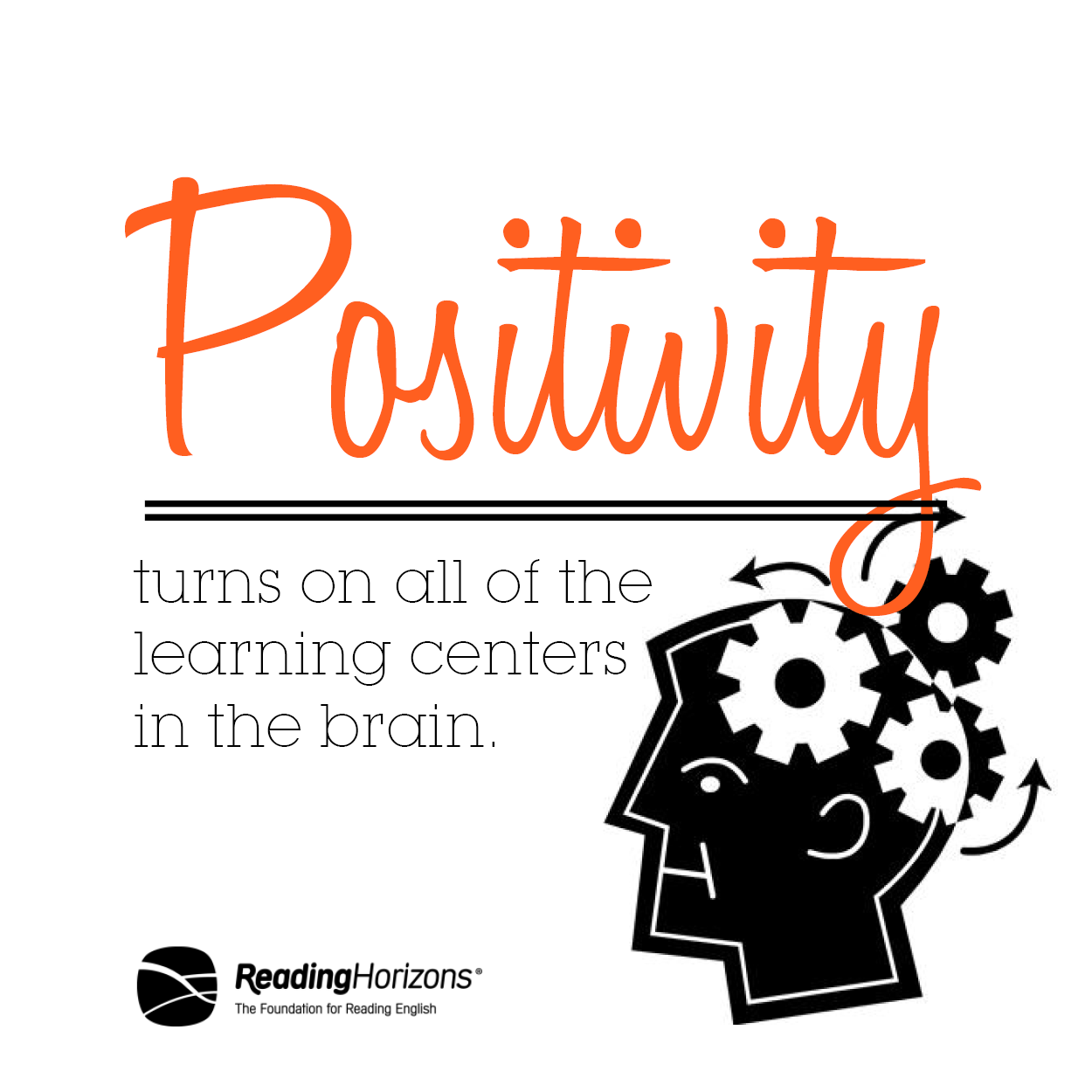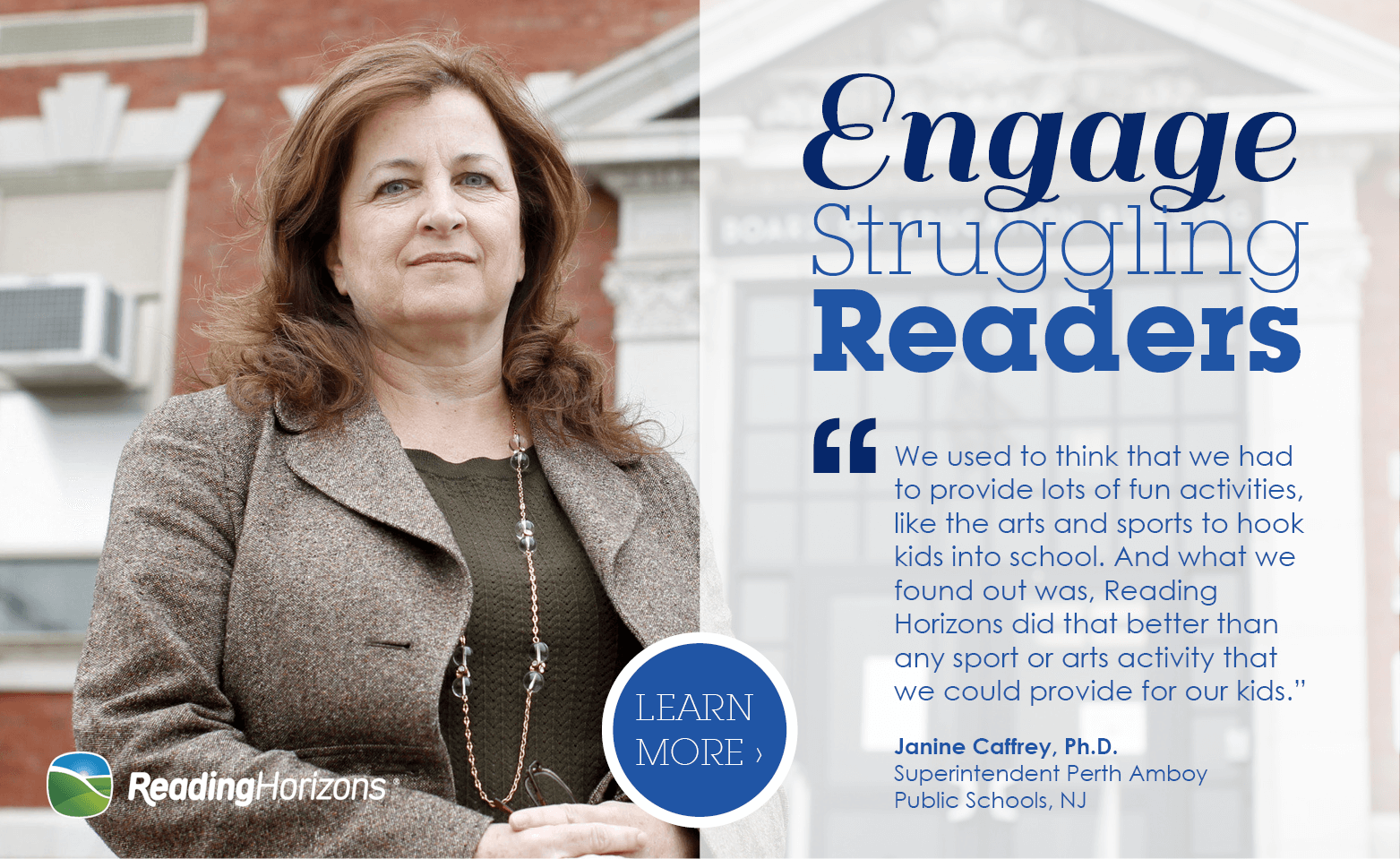One 2-Minute Task That Can Drastically Boost a Struggling Reader’s Success
There is a simple 2-minute task you can have your students do each day, that, if repeated for 21 days researchers have found brings the following results:
“Your intelligence rises, your creativity rises, your energy levels rise. In fact, what we've found is that every single business outcome improves. Your brain is 31 percent more productive ... You're 37 percent better at sales. Doctors are 19 percent faster, more accurate at coming up with the correct diagnosis. Our brains work even more successfully as we're able to work harder, faster and more intelligently.”
– Psychologist, Shawn Achor (FYI: a few words that revealed the secret were omitted to build curiosity)
What is it that brings about these drastic improvements?
Here’s Shawn Achor with the answer:
So, what’s the thing that can drastically boost the success of your struggling readers: positivity.
When you get a student in a positive mindset, their brain releases dopamine, which does two things for them:
- They are happier.
- All of the learning centers of their brain are turned on.
Both of these effects are beneficial for helping struggling readers. These students often feel defeated, self-conscious, and demotivated. Getting them to feel happy and positive is crucial for their success. And the second point, positivity turns on all of the learning centers in your brain, is going to help them understand new material at a faster rate, helping boost their self-esteem and maintain a positive attitude. If you can help your struggling readers get in a positive mindset before your explicit phonics instruction, their cognitive abilities can be boosted by an average of 31%.

It’s amazing how much something so unrelated to ability affects your students’ abilities. In fact, according to Achor, the ability is rarely the cause of success, “75% of job successes are predicted by your optimism levels, your social support and your ability to see stress as a challenge instead of a threat.”
This provides so much power and insight as to how to help struggling readers in your classroom succeed.
The best thing about Achor's research is that it is so easy to implement. Here are six simple suggestions from Achor that will help your students retrain their brains to view the world in a more positive light:
- Spend two minutes a day to write down three new things you are grateful for - for 21 days in a row.
- Journal about one positive experience you’ve had every 24 hours.
- Exercise.
- Meditate to allow your brain to focus on one thing at a time.
- Perform random acts of kindness.
- Write one positive email to someone you know every time you open up your inbox.
So, before jumping into your reading curriculum, take two minutes at the start of each class to have your students write down three things they are grateful for, and see how it affects their success at learning to read. (I’d love to hear how it goes!)
And, if you really want to help your students: work on increasing your own level of positivity. It will make you 31% more effective at reaching your students. Your brain will be more creative and adept at solving your students’ problems. Plus, on top of all of that: you will be happier.
Learn how Reading Horizons keeps beginning and struggling readers engaged in learning to read with our elementary reading program and reading intervention curriculum.
10 Comments

kasmersensei said
Do you have a link to the results of your research?

Bassey Udo said
I agree with you, optimism is a good catalyst to success.

angela said
The research was done by Shawn Acker, here is a link to his book: http://www.randomhouse.com/book/200789/the-happiness-advantage-by-shawn-achor And here is a link to the above video: http://www.ted.com/talks/shawn_achor_the_happy_secret_to_better_work.html

Dawn E Donovan said
I volunteer at a local high school in a Life Skills Class. These students have varied special needs - ADD, ADHD, physical, mental, etc. I want to try this with the students. I great number of these children come into the classroom with such negativity and I have a few questions on how to proceed. If I provide each student with a journal and they don't record happiness on week-end days will it still work? Should I read the journals? I really want to help these children feel better about themselves.

angela said
Great questions Dawn! Not having done the research myself I'm not sure if not including weekend days would influence it... but the more they are looking for positive things to be grateful for, the more effective it will be. If you can get them to do it over the weekend that would be beneficial. I can see both pros and cons to reading their journals... pros- you will know if they are taking the exercise seriously and you can assure that they are truly being positive... cons - since they are high school aged they may enjoy having their autonomy and doing it on their own.

Susan said
I would suggest that if you read them, you comment in a positive way on their entries. I often did that with both elementary students and with adult literacy and ESL students--if your comments are sincere responses to the author's entry, they have a very positive effect.

Maggie Weller said
Years ago (because I am a retired high school teacher now), I gave each student a blank piece of binder paper and asked them to write their name on the top line. I asked them to pass that sheet to the student in front of them. That sutdent, receiving the paper, was asked to write ONE positive sentence about the person whose name was on the top line. I did provide writing stems, such as, "I admire your talent of...(ability to..., the time when you...., etc.) After 2-3 minutes I asked the class to pass the sheet they had on to the next student. This was repeated until the entire class had written a "Warm Fuzzy", or postive thought, to the person whose name was at the top. When the sheets were returned to the original student, what I didn't expect were the tears of joy, the faces of awe, the happy shock, the affirmation, and on and on.... Those sheets of paper represented the WORLD!!! It told each student that THEY were okay; they were normal; they were lovable; that their peers saw them in a positive light. This short exercise changed the enitre dynamic of my classroom. Instead of thinking that "So and So dislikes me, or is beeter tha I am", each student realized that there were no enemies in the classroom, but rather that the class was a team. It was wonderful!! I know, that to this day, those sheets of paper have more value any any gold. How do I know???...because I put my own name on the top of one of those sheets, and those statements of positivity from each of "my kids" still mean the world to me... and... I was the adult.

Peter Clark said
Accentuate the positive, eliminate the negative. What you focus on expands, so choose wisely!

D. Brown said
Interesting.

Ocila said
I will try your theory. It sounds very interesting for me. I'm a teacher from France and in my opinion it will bring me a good results. Thank you!
